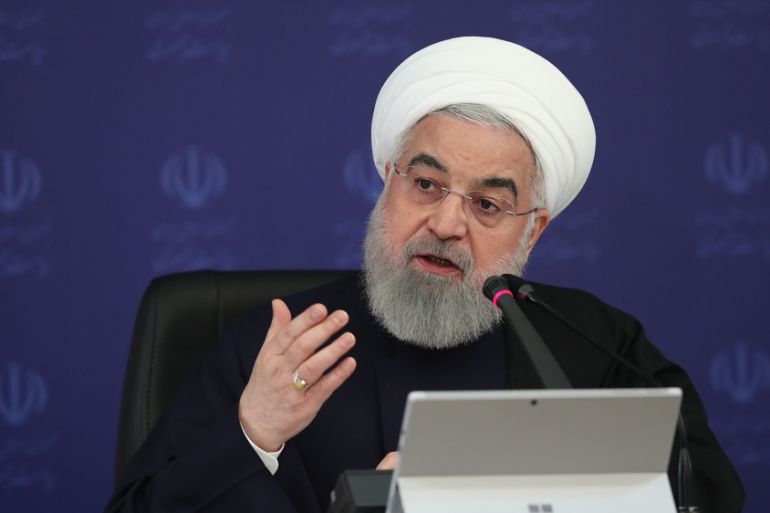Iran to resume low-risk economic activities amid COVID-19 crisis
Iranian President Hassan Rouhani says two-thirds of government employees to return to their offices from April 11.

Iran’s President Hassan Rouhani has said “low-risk” economic activities will resume from April 11 amid a global coronavirus pandemic in the worst-affected Middle Eastern country.
“Under the supervision of the health ministry, all those low-risk economic activities will resume from Saturday,” Rouhani said in a televised meeting on Sunday, adding that “those activities will resume in the capital, Tehran, from April 18”.
Keep reading
list of 3 itemsWhy has the coronavirus hit Iran so hard?
Did Iran flatten the COVID-19 curve?
Iran has been struggling to curb the spread of the highly infectious COVID-19 disease, but authorities are also concerned that measures to limit public life to contain the virus could wreck an already sanctions-battered economy.
“Two-thirds of all Iranian government employees will work out of the office from Saturday … The decision does not contradict stay-at-home advice by the health authorities,” Rouhani said.
The Iranian leader did not spell out what he meant by low-risk activities, but said the suspension of “high-risk activities” – schools, universities and various social, cultural, sports and religious events – would be extended to April 18.
Second coronavirus wave feared
Reporting from Tehran, Al Jazeera’s Zein Basravi said health experts have warned that normalising the situation too soon could bring on a second wave of the pandemic in the country.
“We can surmise that what the government considers low risk is anything that doesn’t compel too large of a crowd to form,” he said. “People can work from home, and they can open small businesses.”
“In terms of what high risk is, schools and shrines remain closed – anything where there is a potential mass gathering [such as] cinemas, football stadiums, large shopping complexes,” he said.
Basravi said Rouhani made it clear that the government’s branches were all on board with his plan to partially ease the restrictions.
“We have to remember that the country’s main concern all along has been the virus might do what sanctions could not, which is bring the economy to a standstill. And that’s really what they’re trying to fight against at this time,” Basravi said.
Iran’s health ministry on Sunday said the coronavirus death toll in the country had reached 3,603, while a total of 58,226 people were infected. The daily toll has been rising by at least 100 deaths for the past few days.
Iranian officials have repeatedly complained that many Iranians have been ignoring appeals to stay home and to cancel travel plans for the New Year holidays that began on March 20.
Rouhani’s government has refrained from imposing a lockdown on cities but banned intercity travel until April 8. He said this ban would now be extended until April 18.